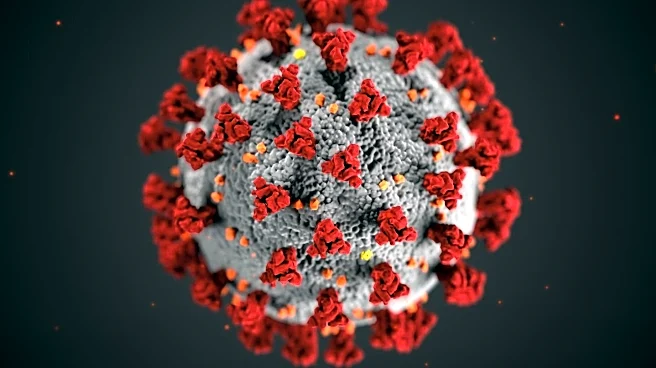What's Happening?
The Democratic Republic of Congo has declared a new Ebola outbreak in the southern Kasai province, with over a dozen fatalities reported. The National Institute for Biomedical Research in Kinshasa confirmed the presence of the Zaire strain of the virus. This development comes as the country grapples with intensified conflict in the east and a weakened healthcare system due to U.S. aid reductions. The outbreak has resulted in 15 deaths among 28 suspected cases, including four healthcare workers. The World Health Organization has warned that the number of cases is likely to increase as transmission continues.
Why It's Important?
The resurgence of Ebola in Congo poses significant public health challenges, particularly given the country's fragile healthcare infrastructure. The outbreak threatens to exacerbate existing healthcare issues, potentially leading to a wider spread of the virus. The situation is further complicated by ongoing conflict and reduced international aid, which could hinder effective response efforts. The outbreak's impact extends beyond public health, potentially affecting regional stability and international relations, as global health organizations mobilize resources to contain the virus.
What's Next?
Efforts to contain the outbreak are underway, with the World Health Organization deploying experts to the affected region to enhance disease surveillance and treatment. Local health officials are urging the public to adhere to preventive measures, such as social distancing and hand-washing. The Congolese government has implemented partial confinement measures, including the suspension of public gatherings, to curb the virus's spread. The international community is likely to monitor the situation closely, with potential implications for global health security and aid policies.









